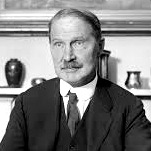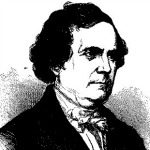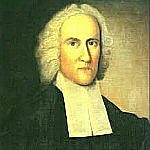Quotes about Revival-Results
Powerful preaching is a hallmark of true revival. Revival preachers demonstrate their commitment to the authority and sufficiency of the Scriptures, with bold, urgent, and uncompromising preaching, as they set before God’s people the way of life and death. Powerful, Spirit-filled sermons concerning sin, Christ and the cross penetrate the hearts of the saved and lost alike with the realities of eternity.
When Holy God draws near in true revival, people come under terrible conviction of sin. The outstanding feature of spiritual awakening has been the profound consciousness of the Presence and holiness of God.
During true revival, thousands of lost people are suddenly swept into the Kingdom of God. Scenes of the lost coming to the Savior in great, and unprecedented numbers, are common.
Revivals begin with God’s own people; the Holy Spirit touches their heart anew, and gives them new fervor and compassion, and zeal, new light and life, and when He has thus come to you, He next goes forth to the valley of dry bones…Oh, what responsibility this lays on the Church of God! If you grieve Him away from yourselves, or hinder His visit, then the poor perishing world suffers sorely!
A revival…is a special and manifest outpouring of the Spirit of God, when the work no longer labors in the hands of man but seems to be taken up by God Himself, and God comes down in a manner and with an influence before which the wicked stand in awe, and all the people feel His special presence… Everybody hears, because they come [to church] to hear; everybody feels, because they cannot help it. Every day sinners are awakened, and every day sinners are converted. While one is weeping for his sins, another is rejoicing in hope. And ministers and experienced Christians give themselves up entirely to the work which God has thrown upon their hands, to warn those who are yet careless, to guide the inquiring, and to nourish those who are born again. Conscience is almost universally tender. Turn where you will to speak of the things of eternity, and you may find a willing ear; address whom you will on the concerns of his soul, and not unlikely the first word will open a fountain of tears. And what is all this? And whence comes it? It is the Spirit of God, it is the power of the Highest, and all feel that it is so.
The Christian faith is now much more the subject of conversion at friend’s houses than ever I knew it. The doctrines of grace are espoused and relished. Private religious meetings are greatly multiplied. The public assemblies (especially preaching) are much better attended. Listeners were never so attentive and serious. There is indeed an extraordinary appetite after the “sincere milk of the Word.”
Distinguishing Marks of a Work of the Spirit of God by Jonathan Edwards, Preface, 1741, Preface.
Revival is not just an emotional touch; it’s a complete takeover!
Brokenness, The Heart God Revives, Moody Publishers, 2002, p. 38. Get this book!
A work is not to be judged by any effects on the bodies of men; such as tears, trembling, groans, loud outcries, agonies of body, or the failing of bodily strength. The influence persons are under is not to be judged of one way or other by such effects on the body. Scripture nowhere gives us any such rule. We cannot conclude that persons are under the influence of the true Spirit because we see such effects upon their bodies. This is not given as a mark of the true Spirit; nor on the other hand, have we any reason to conclude from any such outward appearances that persons are not under the influence of the Spirit of God. There is no rule of Scripture given us by which to judge spirits that either expressly or indirectly excludes such effects on the body, nor does reason exclude them.
Distinguishing Marks of a Work of the Spirit of God, 1741. Modern language courtesy of Archie Parrish, The Spirit of Revival, Crossway Books, 2000, p. 59-60.
There were earnest longings that all God’s people might be clothed with humility and meekness, like the Lamb of God, and feel nothing in their hearts but love and compassion to all mankind; and great grief when anything to the contrary appeared in any of the children of God, as bitterness, fierceness of zeal, censoriousness, or reflecting uncharitably on others, or disputing with any appearance of heat of spirit.
People may seem to have an extraordinary conviction of the dreadful nature of sin and a very uncommon sense of the misery of a Christless condition. They may have extraordinary views of the certainty and glory of divine things. They may be moved with extraordinary affections of fear and sorrow, desire, love, or joy. People may be changed very suddenly, and the work be carried on with very unusual swiftness… If in its nature an operation conforms to the rules and marks given in Scripture, the extraordinary and unusual degree of influence and power is rather an argument in its favor. The higher the degree of agreement to the rule, the more evident that conformity.
Distinguishing Marks of a Work of the Spirit of God, 1741, Modern language courtesy of Archie Parrish, The Spirit of Revival, Crossway Books, 2000.
Some of these things the devil would not do if he could. He would not awaken the conscience and make men aware of their miserable state caused by sin. He would not make them aware of their great need of a Savior. The devil would not confirm men in the belief that Jesus is the Son of God and the Savior of sinners or raise men’s value and esteem of Him. He would not generate in men’s minds an opinion of the necessity, usefulness, and truth of the Holy Scriptures or induce them to make much use of them. Nor would he show men the truth in things that concern their souls’ interest. He would not undeceive them and lead them out of darkness into light. He would not give them a view of things as they really are…Therefore, we may be sure that these marks are especially adapted to distinguish between the true Spirit and the devil transformed into an angel of light.
Distinguishing Marks of a Work of the Spirit of God, 1741. Modern language courtesy of Archie Parrish, The Spirit of Revival, Crossway Books, 2000, p. 100, 102.
There are many things concerning this work [of revival] that are well known. These are sufficient to determine it to be the work of God… The Spirit who is at work takes people’s minds off the vanities of the world. He engages them in a deep concern about eternal happiness. He puts their thoughts on earnestly seeking their salvation. He convinces them of the dreadfulness of sin and of their own guile and miserable natural state. The Spirit awakens men’s consciences and makes them aware of God’s awful anger. He causes in them a great desire and earnest care and endeavor to obtain God’s favor. He causes them to be more diligent in the use of His appointed means of grace. Especially, this is seen in a greater desire to hear and read the word of God. And it is well known that the Spirit who is at work operates as the Spirit of truth. He makes people more aware of what is really true in those things that concern their eternal salvation. He impresses on them that they must die and that life is very short and uncertain. He shows them there is a great sin-hating God to whom they are accountable and who will fix them in an eternal state in another world. He shows them they stand in great need of a Savior. He makes persons more aware of the value of Jesus who was crucified and their need of Him. And this awareness moves them earnestly to seek an interest in Him.
Distinguishing Marks of a Work of the Spirit of God, 1741. Modern language courtesy of Archie Parrish, The Spirit of Revival, Crossway Books, 2000, p. 109-110.
During a revival, spiritually dead or dying church members suddenly could think of little but God and His glory. Every day felt like Sunday with nearly universal longing to worship God in spirit and truth. Sins were confessed, and wrongs were righted. Church leaders proclaimed the Word with renewed zeal.
The Story of Evangelicalism for the Beginning and Before by Collin Hansen taken from Don’t Call it a Comeback, edited by Kevin DeYoung, copyright 2011, Crossway Books, a division of Good News Publishers, Wheaton Illinois 60187, www.crosswaybooks.org. Page
The outward forms of revivals do, of course, differ considerable, but the inward and permanent content of them is always the same: a new experience of conviction of sin among the saints; a new vision of the cross of Jesus and of redemption; a new willingness on man’s part for brokenness, repentance, confession, and restitution; a joyful experience of the power of the blood of Jesus to cleanse fully from sin and restore and heal all that sin has lost and broken; a new entering into the fullness of the Holy Spirit and of His power to do His own work through His people; and a new gathering in of the lost ones to Jesus.
The Calvary Road, Christian Literature Crusade, 1950, p. 11-12. P.O. Box 1449, Fort Washington, PA 19034-8449. Used by Permission.
Revival is not a green valley getting greener, but a valley full of dry bones being made to live again and stand up an exceeding great army (Ezek. 37). It is not good Christians becoming better Christians – but rather Christians honestly confessing that their Christian life is a valley of dry bones and by that very confession qualifying for the grace that flows from the cross and makes all things new.
The Calvary Road, Christian Literature Crusade, 1950, p. 12. P.O. Box 1449, Fort Washington, PA 19034-8449. Used by Permission.
Revival is just the life of the Lord Jesus poured into human hearts. Jesus is always victorious. In heaven they are praising Him all the time for His victory. Whatever may be our experience of failure and barren-ness, He is never defeated. His power is boundless. And we, on our part, have only to get into a right relationship with Him, and we shall see His power being demonstrated in our hearts and lives and service, and victorious life will fill us and overflow through us to others. And that is Revival in its essence.
The Calvary Road, Christian Literature Crusade, 1950, p. 21. P.O. Box 1449, Fort Washington, PA 19034-8449. Used by Permission.
We are not to think that we can organize prayer as if we are in control. The very ability to pray with unction and faith is given by the Holy Spirit, and although that activity largely precedes revival, prayer also is an integral part of revival.
True revival lives in prayer. Prayer draws power from revival. We need only to follow the way-marks of their remarkable history to be satisfied of their inseparable unity.
Revival is measured by the transformation of human lives and the transformation of culture as a result of those transformed lives.
When man truly becomes what he is meant to be under God he then begins to realize what faculties and propensities he has, and he begins to use them. And so you will find that the greatest periods and epochs in the history of countries have always been those eras that have followed in the wake of great religious reformation and revivals.
Revival, above everything else, is a glorification of the Lord Jesus Christ, the Son of God. It is the restoration of Him to the center of the life of the Church. You find this warm devotion, personal devotion, to Him.
Shall we believe that when God’s Spirit is poured out from on high, His graces, like tides of molten silver, shall first enrich His chosen ones and then roll out to the whole earth to aggrandize and ennoble its impoverished children? Shall we believe that when a revival takes place on a scale commensurate with the Church’s necessities, that she shall awake from her slumber, put on her beautiful garments, and, rich in all the graces wherewith the Savior so plenteously adorns His chosen Bride, go forth in His name to speak peace unto the nations? Shall we believe that when a revival is produced, that the hearts of Christians shall become almost visibly the habitation of God through the Spirit, and be irradiated with all the moral glory of His Divine presence?
There is need of a great revival of spiritual life, of truly fervent devotion to our Lord Jesus, of entire consecration to His service. It is only in a church in which this spirit of revival has at least begun, that there is any hope of radical change in the relation of the majority of our Christian people to mission work.
A true revival means nothing less than a revolution, casting out the spirit of worldliness and selfishness, and making God and His love triumph in the heart and life.
Genuine revival will always foster a high regard for Scripture.
Charismatic Challenge by John Napier, Providence House Publishers, 2003, p. 157. Used by permission. All rights reserved.
In Acts 2 the Holy Spirit does come upon [the apostles], revealing four things about revival: One, revival is miraculous (verses 1-4). Humanly uncaused. “Suddenly there came from heaven” (verse 2). Two, revival is mysterious (verses 5-13). Humanly inexplicable. “What does this mean?” (verse 12). Three, revival is meaningful (verses 14-36). Humanly undeniable. “Men of Israel, hear these words: Jesus of Nazareth” (verse 22). Four, revival is mighty (verses 37-41). Humanly irresistible. “There were added that day about three thousand souls” (verse 41).
In times of revival, God manifests His glorious presence in the midst of His people. The awesome sense of His holiness produces overwhelming conviction of sinfulness, leading to deep repentance. The greater measure of the Spirit rejuvenates an authentic church; everywhere there is bountiful praise and worship, hunger for truth, and whole-hearted service to God, overflowing into powerful evangelization of the world (Lowell Yoder).
No upsurge of religious interest or excitement merits the name of revival if there is no profound sense of sin at its heart. God’s coming, and the consequent impact of His Word, makes Christians much more sensitive to sin than they previously were: consciences become tender and a profound humbling takes place. The perverseness, ugliness, uncleanness, and guilt of sin are seen and felt with new vividness.
A revived church is full of the life, joy and power of the Holy Spirit. With the Spirit’s coming, fellowship with Christ is brought right to the center of our worship and devotion; the glorified Christ is shown, known, loved, served, and exalted. Love and generosity, unity and joy, assurance and boldness, a spirit of praise and prayer, and a passion to reach out to win others are recurring marks of a people experiencing revival.
Christians in revival are accordingly found living in God’s presence (Coram Deo), attending to His Word, feeling acute concern about sin and righteousness, rejoicing in the assurance of Christ’s love and their own salvation, spontaneously constant in worship, and tirelessly active in witness and service, fueling these activities by praise and prayer.
Revival is the visitation of God which brings to life Christians who have been sleeping and restores a deep sense of God’s near presence and holiness. Thence springs a vivid sense of sin and a profound exercise of heart in repentance, praise, and love, with an evangelistic outflow.
Revival describes a renewal of spiritual life, while reformation describes a renewal of the forms and structures of society and culture. It is not possible to have true reformation without first having true revival. The renewal of spiritual life under the power of the Holy Spirit is a necessary condition for reformation but not a sufficient condition for it. Therefore, though it is not possible to have reformation without revival, it is possible to have revival without reformation.
The Spirit of Revival by Archie Parrish, Introduction, Copyright 2000, Crossway Books, a division of Good News Publishers, Wheaton Illinois 60187, www.crosswaybooks.org, p. 17.
10 Characteristics of Revival:
1. God draws near. God comes down.
2. Sin is sensed.
3. God’s Word is embraced.
4. The Church becomes the Church.
5. Evangelistic zeal is intensified. Love for the lost deepens.
6. Social justice is pursued.
7. Routine things occur rapidly.
8. God is enjoyed.
9. Worship is revitalized.
10. Shining faces!
Reflections in Revival, November 8, 2006, www.enjoyinggodministries.com. Used by Permission.
Recommended Books


















